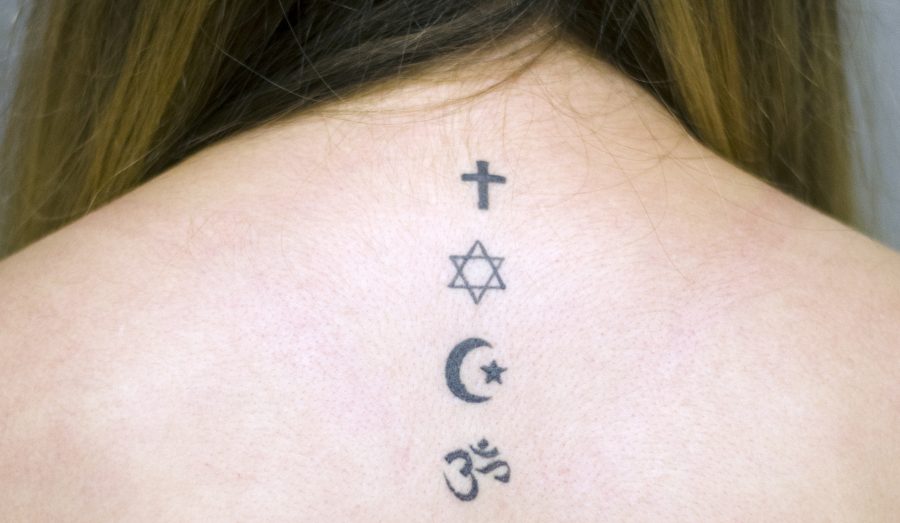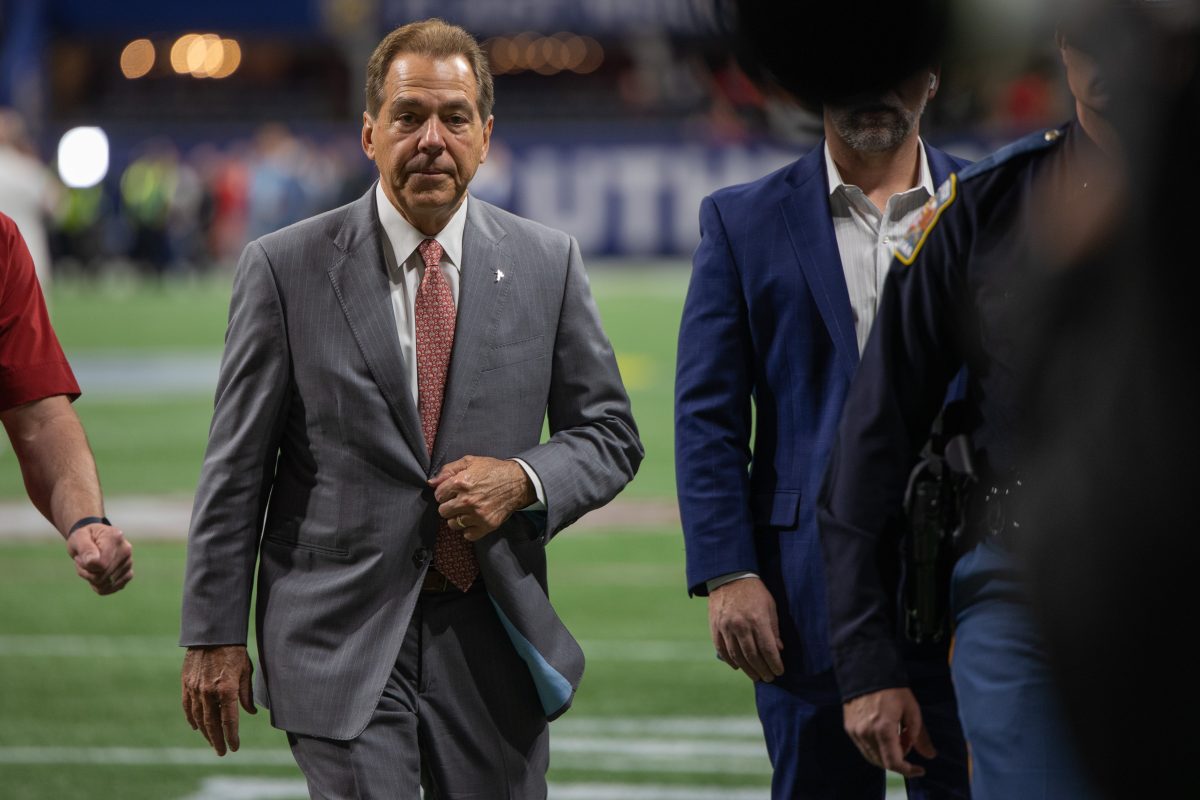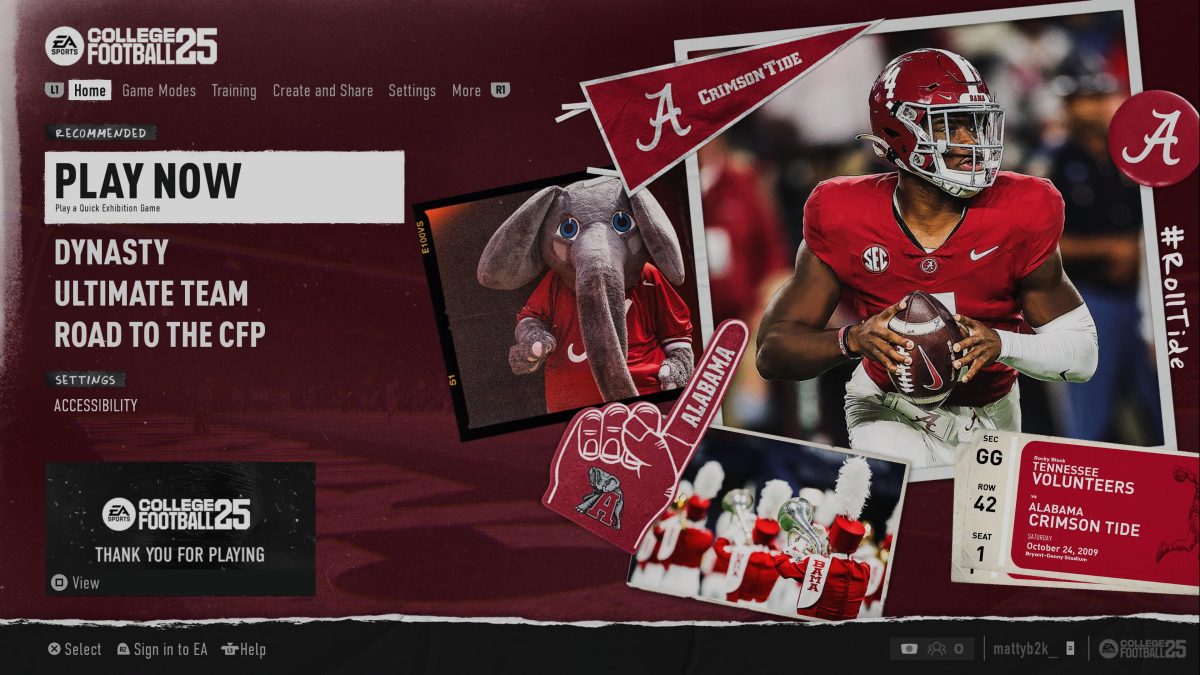When he’s in public, gets strange looks from people, their eyes drifting down to the sleeve of tattoos running down his left arm. But Bryan McKinley doesn’t let this faze him. In Cynical Tattoos, the shop where he works, the artist is relaxed and comfortable, smiling and joking with longtime customers as he applies designs to their bodies.
There’s a deep veneration for popular culture at Cynical Tattoos – the wall behind McKinley’s workstation is adorned with a framed poster featuring an army of “Star Wars” characters. But in addition to designs featuring famous characters, many of the tattoo templates available at the shop are religious in nature. Crosses and other Christian symbols are common. It seems that attitudes toward tattoos are changing, even among those who used to oppose them.
“It’s gotten a lot better in the past few years with TV and the Internet and everything like that,” McKinley said. “It’s been a huge, huge help to the tattoo society, getting it out there.”
The artist is a University of Alabama alumnus who studied graphic design. He said he’s always been interested in tattoos and that he “fell in” to the profession after college. To McKinley, the negative stereotypes associated with tattoos come from the past.
“It’s just an older generation,” he said. “At the time they were coming up, tattoos were pretty much outlawed. You didn’t really see anybody with a tattoo unless they were a criminal. It kind of gets thrown into that whole stereotype. That’s just all they know.”
But there’s been a boom in the popularity of tattoos in recent years, and according to McKinley, that has led to more and more acceptance. Even in the workplace where tattoos might still be considered “unprofessional,” people are beginning to change their minds.
“It has gotten a lot better,” he said. “We work with police officers, the fire department. You name it, we’ve tattooed them.”
Still, some stigma exists. Paige Toney, who co-owns Symbolic Ink with her husband, said she often gives tattoos to white-collar professionals, though they typically ask that the art be concealed from public view so they can avoid alienating certain customers.
“We have clients that are attorneys, doctors, stuff like that,” she said. “A lot of people in the South who aren’t about tattoos, people go to [these clients], and they don’t know they have them.”
There’s a religious objection to tattoos in some interpretations of Christian doctrine.
“I think if you’re from the more traditional side of Christianity, you’re going to say that you shouldn’t have tattoos or piercings because the Bible says that your body is supposed to be a temple; you’re supposed to be in God’s image,” said Mikala Thornton, a freshman majoring in communication studies at the University. “But I feel like if we’re focusing too much on that, we’re missing the big picture.”
Thornton attends Calvary Baptist Church. In the past, she said, she’s seen religious tattoos used as a part of the ministry.
“I think it opens the door for a really good conversation piece,” she said. “I had a youth pastor before I moved to Tuscaloosa who had a full sleeve, and when he first got it, everyone was like, ‘You can’t have that being a youth pastor or being in the church.’ But his entire sleeve was like his life story and how he found Christ.”
The expanded popularity of tattooing has some surprising opponents, including some people within the community.
“You have your diehards, your old school guys,” McKinley said. “[They believe] tattooing should be one of those things where it’s earned, not just handed out and given to everybody. And they’re set in their ways. That’s how they were brought up when they were apprentices, and there’s nothing wrong with that, but at the same time, you have to get with the time.”
To McKinley, the complete acceptance of tattoos is only a matter of time.
“As the years progress, it’s going to get a lot better, because the younger generation now will be in charge later,” he said. “And they’ll be covered with tattoos, so it won’t be a big deal. Eventually it’s going to fade out. It’s just a matter of time.”







